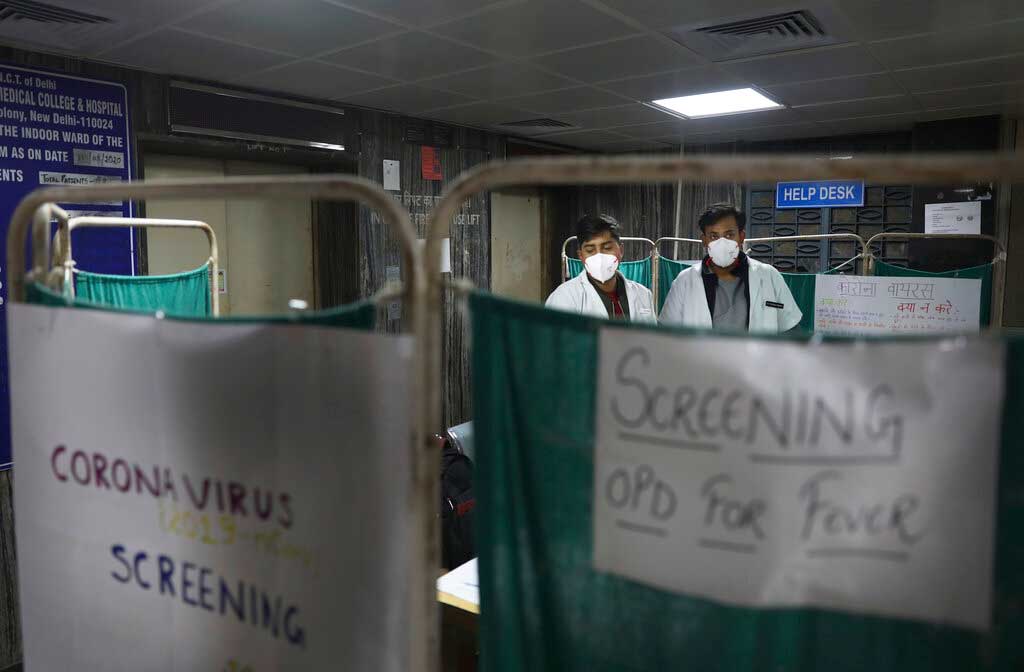Scientists on Wednesday asked the Indian government to use the remainder of the 21-day nationwide lockdown to find as many mild and asymptomatic coronavirus patients as possible, cautioning that without such action the infection could bounce back.
The scientists, including biologists and health researchers, from academic institutions across the country have urged the government to rapidly expand testing, expressing concern that the lockdown period had so far not been used to find mild and asymptomatic patients.
The scientists have also asked the government to announce a “post-lockdown plan” and cautioned about the potential risks of the exodus of migrant workers and possible reverse migration.
“The lockdown may succeed in temporarily suppressing the epidemic, at great social cost, but we are concerned that the government is not using this precious interval of time to actually identify as many cases of coronavirus disease (Covid-19) as possible,” said the statement, signed by around 760 researchers.
The scientists, echoing concerns expressed earlier by health experts, said the current “restricted testing policy” created the risk that a large number of mildly symptomatic or asymptomatic patients who make up the majority of infections will remain undetected even at the end of the lockdown period.
“These cases could easily serve as the nucleus for the epidemic to bounce back,” they said.
The current testing criteria set by the Indian Council of Medical Research (ICMR) recommend tests for people with a recent foreign travel history who have developed symptoms, symptomatic contacts of all positive cases, all symptomatic healthcare workers, and all hospitalised patients with severe acute respiratory illness. The ICMR has also asked for tests on asymptomatic direct and high-risk contacts of positive cases.
The scientists have argued that this policy does not look for asymptomatic and mildly symptomatic infections and has urged the ICMR to take “immediate steps” to expand the country’s testing regimen.
The Union health ministry had by 9am on Wednesday recorded 1,637 confirmed cases among which 1,466 were in hospital, 133 had recovered and 38 had died. But medical experts, relying on patterns of infections in other countries, fear that India’s numbers will grow if it expands its testing criteria.
“We would be squandering the time that the lockdown has bought us if we don’t test to the maximum possible,” said Suvrat Raju, a physicist at the International Centre for Theoretical Sciences, Bangalore, a unit of the Tata Institute of Fundamental Research.
The ICMR has over the past eight weeks helped expand India’s testing capacity — 126 government labs and 50 private labs across the country now offer the coronavirus test. However, the country is currently testing at only 38 per cent of its daily capacity.
A senior home ministry official said on Wednesday that around 656,000 migrant workers had been provided shelter by various state governments in around 21,000 relief camps. She said the states had so far provided over 2.5 million meals to migrant workers.
“The exodus triggered by the lockdown carries the risk that the virus will be carried to all parts of India, including those where healthcare facilities are the weakest,” the scientists said. “This can precipitate an epidemiological and humanitarian crisis.”
The scientists have also urged the government to introduce urgent cash transfers and use its stocks of food grain to ensure the food security and welfare of the migrant workers so that they are not compelled to undertake long and unsafe journeys.
A post-lockdown plan, the scientists said, would help enhance the public’s confidence in the government’s long-term strategy.
Scientists from the Indian Institute of Science, Bangalore, the Indian Institutes of Technology, the Indian Institutes of Science Education and Research and several medical institutions, including some medical colleges and the National Institute of Mental Health and Neurosciences, Bangalore, have signed the statement.
An independent group of over 200 scientists from multiple institutions had released a similar statement on Tuesday, calling on the government to expand testing.











